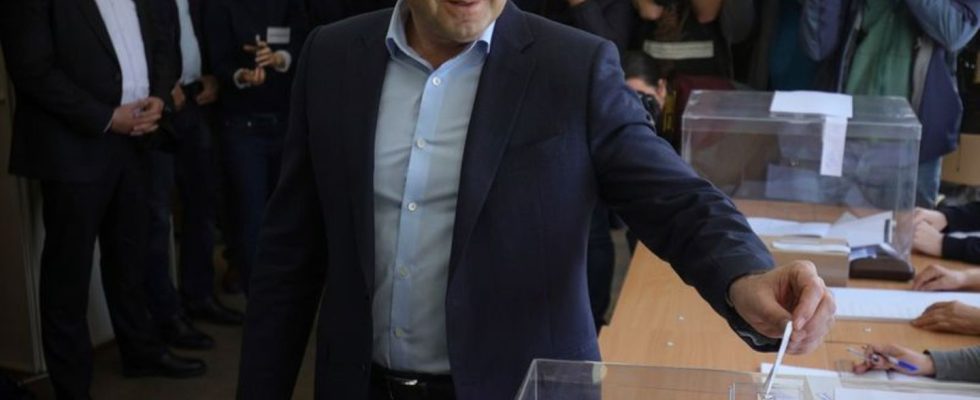Balkan country
Pro-Western bloc leads Bulgarian parliamentary elections
“I expect common sense and principles to prevail in Bulgarian politics”: President Rumen Radev casting a vote in Sofia. photo
© Valentina Petrova/AP/dpa
Five elections within two years – in Bulgaria a new parliament was once again voted on. Rising prices and the Ukraine war are exacerbating the crisis. Will there be a new government this time?
According to initial forecasts, the pro-Western reform bloc PP-DP emerged as the strongest force in the parliamentary elections in Bulgaria. The liberal-conservative bloc should therefore get a good 26 percent of the votes.
The equally pro-Western center-right alliance of the GERB-SDS, which was voted out of office in 2021 after allegations of corruption, came in second with up to around 25 percent of the votes. In terms of foreign policy, both camps agree on supporting Ukraine in the Russian war of aggression, including with arms deliveries.
According to the forecasts, five parties will definitely enter the parliament in Sofia. Among them, with a good 13 percent, is the pro-Russian and nationalist party Wasraschdane (Rebirth).
Who will form a government?
Political scientists see the most important question after the election as which party can form a government, not which one won the election. In the 240-seat parliament, no party is forecast to have a sufficient majority to govern alone. Top politicians only wanted to comment on their plans after the official results had become known.
In view of the expected balance of power, the formation of a new government is likely to be difficult even after this fifth election within two years. During the election campaign, the parties made accusations and insults and drew a lot of red lines – for example on the stance on the Ukraine war, judicial reform or the introduction of the euro.
“I expect common sense and principles to prevail in Bulgarian politics,” said President Rumen Radev when voting. The head of state announced that he would not delay the award of the government contract. A transitional cabinet appointed by him will run government business in view of the new election.
After five elections: hope for regular government
According to political scientists, the EU country urgently needs a regular government. Political scientist Rumyana Kolarova said that an executive cabinet could not offer solutions to the problems. Since parliament was repeatedly dissolved before new elections, important laws fell by the wayside – such as the laws to implement the country’s EU recovery plan or currently – for a price brake.
Further areas of concern for a future government would be the fight against corruption, the country’s planned accession to the Schengen area without border controls, and the introduction of the euro. Due to high inflation, entry into the euro zone, originally planned for 2024, was postponed.

